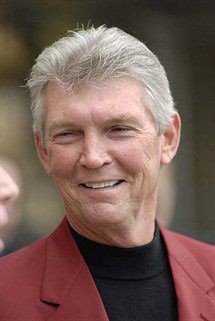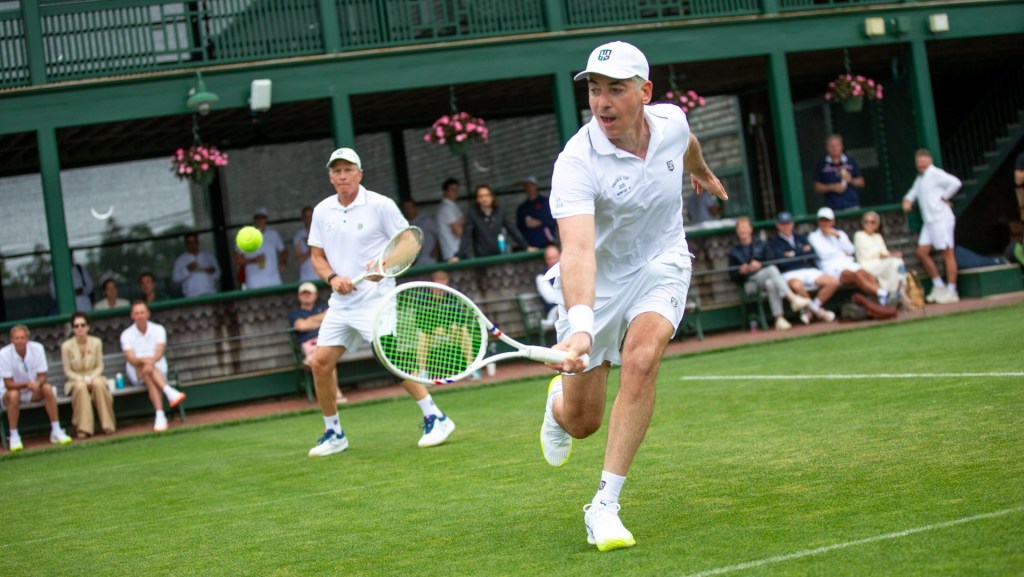By: Jay Stein, @JStein209

Front Office Sports is proud to have sat down with Pat Richter, Executive Vice President of the Sports Practice at DHR International and Former Athletic Director at the University of Wisconsin. Mr. Richter was a highly celebrated athlete while attending the University of Wisconsin, playing baseball, basketball and football, before ultimately being drafted to the NFL, where he played eight seasons with the Washington Redskins. After his playing career, he then went on to work with General Foods/Oscar Mayer Food Corporation, becoming the VP of Personnel before being recruited to go back to the University of Wisconsin as the Athletic Director. Mr. Richter was happy to offer up his time and insight into how he successfully transitioned from corporate business into the sports business environment, why location and culture is always an important factor in sports, and some general thoughts on the competitive landscape in sports business and what new opportunities may be on the horizon.
How did your previous positions help prepare you to get to where you are today?
When Mr. Richter first took the role as Athletic Director and got to the University of Wisconsin, there was a lot of turmoil surrounding the school’s athletics. He credited his experience in corporate business in preparing him for the job at the University, discussing the importance of corporate culture:
“When I was at General Foods/Oscar Mayer, from a corporate standpoint, I was able to absorb a lot of the things that were done based on the corporate culture and what kind of culture you are creating.” Mr. Richter advanced on the subject of culture and talked about how, “the environment makes a big difference [too], being around a good and successful organization, to see things: marketing, strategic planning, accounting, finance, sales, etc…” He went on to explain how the experience in corporate business, “was a tremendous value, almost like an internship experience, even though I was in HR, I was able to absorb a lot.”
Mr. Richter continued, “when we came in [to the University of Wisconsin], you have to be true to yourself, and we set the department up based on the way we thought was right…and common sense plays a big part.” He shared his thoughts on how, “the culture and the experiences you have at different organizations are very important. You can see what can be done when people are pulling in the same direction, and in other cases, you can also see what happens when things aren’t going smoothly and people are pulling in opposite directions.” He finished by saying, “in athletics, the main thing that you need to remember is that, you just don’t want to compete but you want to be competitive.”
What was it like making the transition back to your alma mater as the Athletic Director?
Looking back to his days with Oscar Mayer Food Corp., Mr. Richter mentioned that at first he “did not really have much interest” when initially approached about the opportunity to become Athletic Director at the University of Wisconsin. He felt that he “did not have the background” that qualified him to take the role other then the experience gained from playing.
Mr. Richter went on to say that “it is not an exact science to make changes to be successful, but we try and find people who have some type of vested interest.“ He continued by specifically looking at the hiring of Men’s Basketball Coaches Dick Bennett and Bo Ryan while at the University of Wisconsin.
Mr. Richter stated that “these are guys who have spent a lot of time in Wisconsin, they have a lot of people that support them, and they don’t want to disappoint anybody. They’re going to work very, very hard to be successful and they are probably going to be there a long time, and you don’t want turnover and that is exactly what has happened.” He continued to say that bringing in, “someone who is a home town guy brings stability,” and that it is nice to have “somebody who sees that building that longer term relationship is very important.”
What characteristics and traits in people do you see as most important for those looking to work in sports and how can one differentiate themselves?
Mr. Richter pointed to the views he takes when looking at prospective candidates, with an emphasis on the added value you can bring to a team or university:
He started by saying that, “the university does not need an athletic department to survive,” and ultimately they want people, “who can provide added value without drawing resources away from the university.” When looking at providing added value, “for an Athletic Director; can they sell? Can they market? Are they good with coaches? We are looking for someone who is gregarious, somebody who gets out and talks to people, gets around the teams.”
Mr. Richter went on to say that, “not everybody is cut out to sell or ask for money or things like that.” He continued in regards to the current landscape in that “given the competitiveness and the environment in trying to secure a media rights deal, or a shoe & apparel deal, or to go out and ask for money with respect to facilities, building programs and capital campaigns, it requires a more outgoing personality, someone who has integrity and is trustworthy; someone who can get close to people and make them feel comfortable with the institution.”
How important is relationship building and networking?
Mr. Richter started by saying sports, “is a people business,” and continued to mention this on more then one occasion. “The contacts I have made over the years” has been a platform that has led to a lot of the opportunities that have come Mr. Richter’s way. Although the way business is being done has evolved over the years, it is still vital to cultivate relationships and network, as “sports will always be a relationship business.”
Looking at it from the University perspective, Mr. Richter stated that the “bottom line is the student athletes are looking for an experience and they are coming in and want to be successful.” He continued to say, “the most important things is you got to deal with [student athletes] and got make sure they have a great collegiate experience, and the same goes for the student body because years later down the road they provide the lifeblood of the institution.” Mr. Richter finished to say that, “if you have a good successful athletic program, when [students] leave school, they share the positive experience,” and this is what you want from alumni from a relationship building standpoint.
What changes do you see coming in the sports business industry, specifically with the NCAA rule changes that are being pursued by student athletes?
We talked about the potential opportunities that may spring up from the various changes going on throughout sports and in college athletics. Mr. Richter went on to say that in the matter of “all the legal cases, like with O’Bannon, that are coming down on the side of the student athletes… industries are going to develop that are going to try and find their niche.” He continued, “there will be a constant pushing of the envelope to provide freedom of those student athletes to be represented or represent some things, sponsorships, endorsements, etc., it is bound to start to spread a little bit.”
All of these factors, “can spur things I cannot even fathom right now in terms of opportunities for business and people in IT, Marketing, etc., and we are going to be tested in the next ten years in respect to the relationships with student athletes.”
What impact do you see the international market playing in generating new opportunities in sports business?
Mr. Richter pointed right away to Manchester United and how they have grown tremendously in popularity across the sea over the years. “Cross sponsors, getting a lot of US companies and sponsors, more television… There is an opportunity there for people that understand the marketplace, especially if you speak the language, etc, it certainly opens another opportunity that may not be here in different kinds of sports such as cricket.”
We talked about how the international marketplace is growing and that opportunities are available, but it is “not without its risks.” Mr. Richter then mentioned that the International market, “could have great rewards, but long hours and not so high pay in many cases.” He continued to say that there is also “still a lot to be looked at in terms of the future. Will the NFL get there? The NBA? Playing more games [overseas].”
Parting Wisdom?
“Sports is a great field to be in, it’s interesting, it’s exciting, it captures the attention of the entire world and its something that’s sustainable.”
“People have to understand it is not something that is easy to crack into but certainly worth giving it a shot because of the great rewards that come after that.”
“If you can go out and prove yourself; in that you can go out and raise money or provide alternate revenue sources through marketing,” this is an added value that people will recognize.
“Read your books on integrity and ethics.” This is critical for anyone working in sports, “because so many things can happen that are beyond your control. When you have boosters and other people that can do things, and you have no idea what they are doing, you need to be sensitized to all those things and that environment that surrounds you.”
















